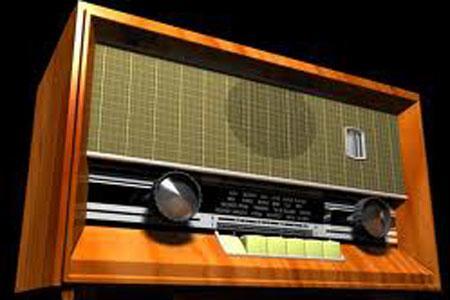
By Mlondolozi Ndlovu
The Zimbabwe Association of Community Radio Stations (ZACRAS) recently held a conference on community radio sustainability.
The conference provided solutions for community radios by discussing the sustainable models that can be adapted for the survival of the newly licensed community radio stations.
Community Radio is the final layer in the three-tier broadcasting matrix which Zimbabwe subscribes to.
A community radio is a localised radio platform, which covers a specific grouping of people or geographical location.
Zimbabwe, after years of consistent lobbying, has licensed community radio stations. To date 14 have been licensed while one is now operational.
However, after the licensing and subsequent launches, the reality is that these community radios need support for full effect. This is from government, corporates and the community.
Broadcasting is expensive. This is why the Rhodesian Broadcasting Corporation, after launch was cushioned by the licensing law where everyone with a television set had to pay. Even to date, after the emergence of other channels and possible alternatives, ZBC is still reliant on television licences.
- Chamisa under fire over US$120K donation
- Mavhunga puts DeMbare into Chibuku quarterfinals
- Pension funds bet on Cabora Bassa oilfields
- Councils defy govt fire tender directive
Keep Reading
It is a reality which makes relevant the case for a conversation around community radio stations and the need to reflect on how we can make them grow into viable platforms.
Loans
Besides issuing licenses, the cost of content should also — to a degree be shouldered by government.
One way this could be done is through content and equipment loans. In the 2021 budget, the Ministry of Information, Publicity and Broadcasting Services got ZWL$1.5 billion.
There can be considerations made to loan some of the funds to community radios. The money can be repaid after a period of time with advertisements generated from the airing of the same content.
It is not new for loans to be given to content creators. After the independence of Zimbabwe, Nigeria bought newspapers under the Rhodesian Printing and Publishing and donated them to government. This shows the importance of financial injections into the media.
Advertisements
Government departments and parastatals are among the biggest advertisers in local media. For community radios, the legal basis for advertisements is there. Section 264, of the 2013 Constitution says there should be devolved governance. This means that provinces and districts should be allowed to self-determine on which areas of development.
So, under devolution, it should become law that a Rural District Councils should advertise vacancies and tenders in their local media and through community radio stations, before they go to national platforms.
Community radio policy
Research and development is central to any sector. Government should not just license community radios and leave it at that. There should be a national community radio policy, which gives an outline of how government envisions the growth of community radios. This should help guide the funding and implementation of projects.
Foreign investment
There is need to revisit the law which prohibits foreign investment in local broadcasting. Zimbabwe is pursuing a policy position in which it is saying “Zimbabwe Is Open for Business.” This business should not be limited to mining and agriculture, but the media too should not be left behind.
If a company can invest US$1 billion in a mining venture, how does a media entity become different? Similarly, community radios are not-for-profit, but they have operational costs.
There are people with deep pockets, who may want to donate equipment from outside the country. The editorial independence of a platform should not worry authorities as it is clear that the community, through committees and boards, should determine how radios function. That mechanism exists to ensure that there are no external influences.
It is not true that everyone who donates to a media platform will in return demand influence, there are diaspora based individuals who may feel a connection to their rural areas and consider donations. There are also some benevolent individuals and organisations who may have excess resources. If the country’s healthcare is partially funded by donors, what is the worst that could happen if community radios are also supported by donations?
Training and exposure
Radio, like any other platform has its conventions.
These conventions were informed by many years of practice and observation. Government should consider facilitating attachments for community radio personnel at ZBC and other radio stations under its purview.
This will allow hands-on experience and ensure that there are no elementary mistakes in the process of learning the ropes. This will save funds, in comparison to the regular method of engaging consultants who may end up charging money which community radios do not have.
Equipment duty
in 2019 Zimbabwe removed duty on solar products. This was meant to support the adoption of clean energy and it has worked as the uptake of solar has grown. Similarly, the country invited Independent Power Producers and gave them all five-year tax exemptions after setup. The same may be considered for community radios.
Government should consider scrapping duty on equipment used by community radios when they import. This will allow them to adapt to technology, which is ever changing. The existence of community radios assists communities with access to nuanced and relevant information. This allows better coordination in times of disasters among other benefits, as such, conditions should be made to ensure that they exist for long.
Levies
Every commercial media business in Zimbabwe pays taxes and license fees. Government can create a direct funnel, in which 5 percent of all taxes paid by businesses in media and communications can be directed to community radios. If political parties can be funded through the Political Players Act, surely there is room to explore funding of community radios.
If government adopts the above mentioned ideas, community radio stations will survive beyond just the licensing period.
- Mlondolozi Ndlovu is a community radio expert and media trainer who works for the Zimbabwe Association of Community Radio Stations. He writes in his own capacity.










